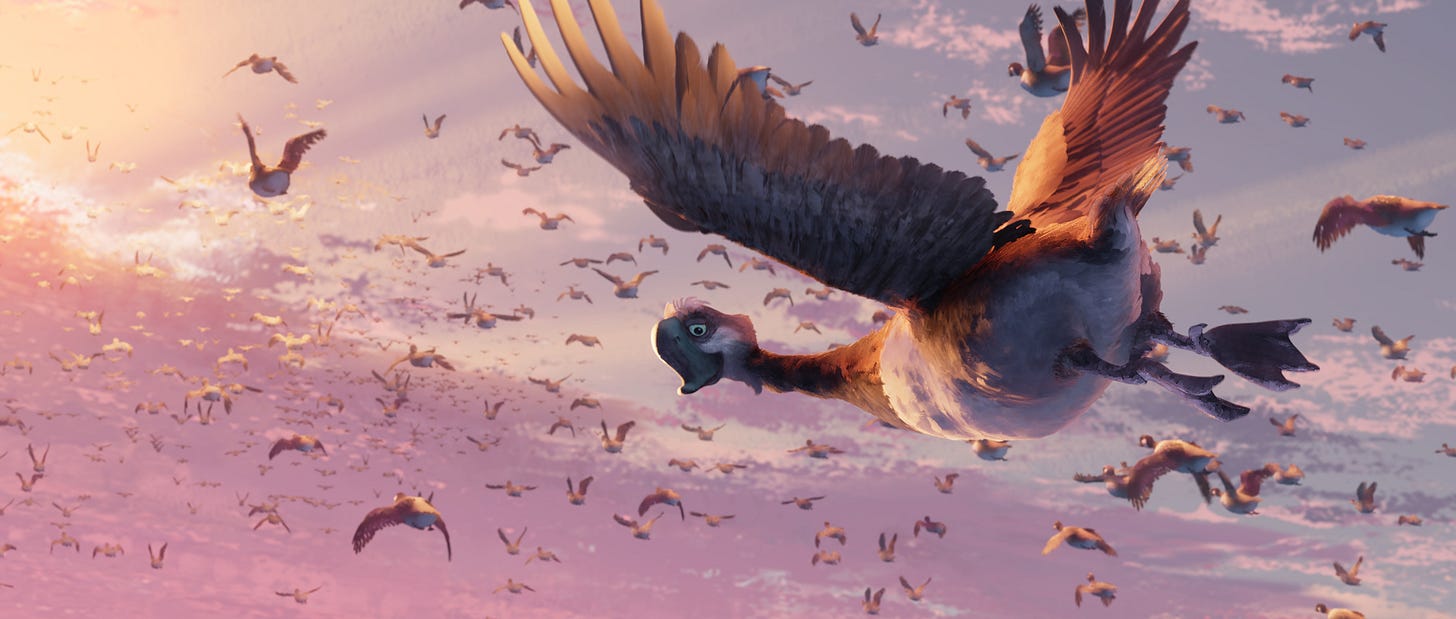Maren Morris on Making 'The Wild Robot's' Soaring Mom Anthem
The Grammy winner goes deep with composer Kris Bowers on the evolution of an emotional wallop
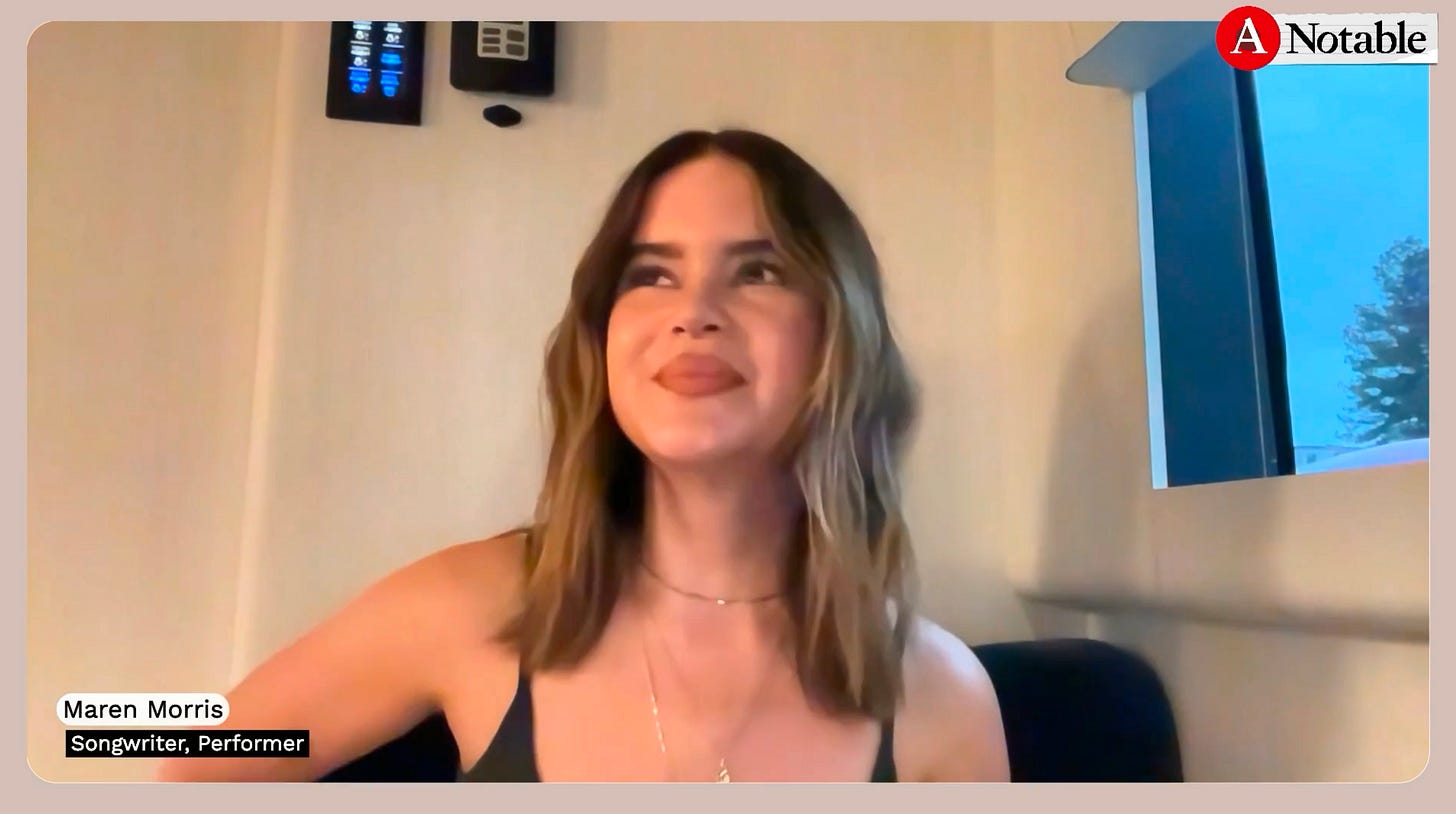
Ed note: Welcome to the debut of Notable, our newsletter where music and Hollywood meet. After today, subscribers will receive this newsletter most Fridays under its own banner (and, as always, can choose to opt out). We’re excited to introduce Rob LeDonne as our Notable columnist (other voices may contribute down the line). Rob is a seasoned music journalist (and comedy writer) who has profiled and interviewed figures from Joan Baez to Clive Davis to Olivia Rodrigo to Lin-Manuel Miranda for publications including The New York Times, Esquire, Vanity Fair, Vogue and Billboard.
Whenever someone finds out I write about music, whether I’m out on a bad date or seeing the dentist (which can be equally excruciating experiences), there’s always the same question: “Who have you interviewed?”
If it’s a real music nerd, I say producer Rick Rubin, whom I bonded with since I once lived in Hawaii (the Def Jam cofounder owns property on Kauai). If it’s a Gen Zer, my reply is Olivia Rodrigo. If it’s a woman around my parents’ age, my go-to is Andrea Bocelli. And if it’s someone who could have participated in Brat summer (aka a gay man), I tell them that not only did I once get ramen with Charli XCX, but I also trailed her around Los Angeles during the entire weekend of her 2014 MTV Video Music Awards debut.
One of the best things about my job is the sheer variety of voices and perspectives I hear from the players who power culture. My favorite days are when I interview someone like Jack Antonoff in the morning and speak to Frankie Valli in the afternoon (before you ask, the latter subject was sharp as a tack).
That’s why I’m so excited to be part of this Ankler venture into the music space, where I’ll be chopping it up with some of the most exciting names in the industry — starting today with Grammy-winning artist Maren Morris and composer Kris Bowers (a 2024 Oscar winner for the documentary short The Last Repair Shop), who spoke to me via Zoom on Nov. 11 about their collaboration on the music for The Wild Robot (DreamWorks Animation/Universal Pictures).
Like Morris, as she tells me below, Notable is meeting its moment. The ramp-up to the Grammy Awards is in full swing (with the nominees out, final round voting kicks off Dec. 13), and the Oscar race is heating up (shortlist voting for categories including song and score starts Dec. 9 and ends Dec. 13; my colleague Katey Rich reads the tea leaves on this week’s flurry of awards and nominations here).
Meanwhile, 2024 has been one of the most exciting years in recent memory with a slate of newly-minted superstars disrupting the industry, from Charli to the femininomenon of Chappell Roan, not to mention the breakout success of Jelly Roll and the record-breaking crossover of Shaboozey. A ton of artists have also released landmark albums, an embarrassment of riches for fans of Beyoncé, Kacey Musgraves and Taylor Swift.
This week alone, the intersection of film and music has dominated culture. Aside from generating all those memes, Wicked had the biggest opening weekend ever for a Broadway adaptation ($163 million at the global box office), only to be unseated over Thanksgiving weekend by another movie musical, Moana 2.
Maren Morris Meets the Moment With “Kiss the Sky”
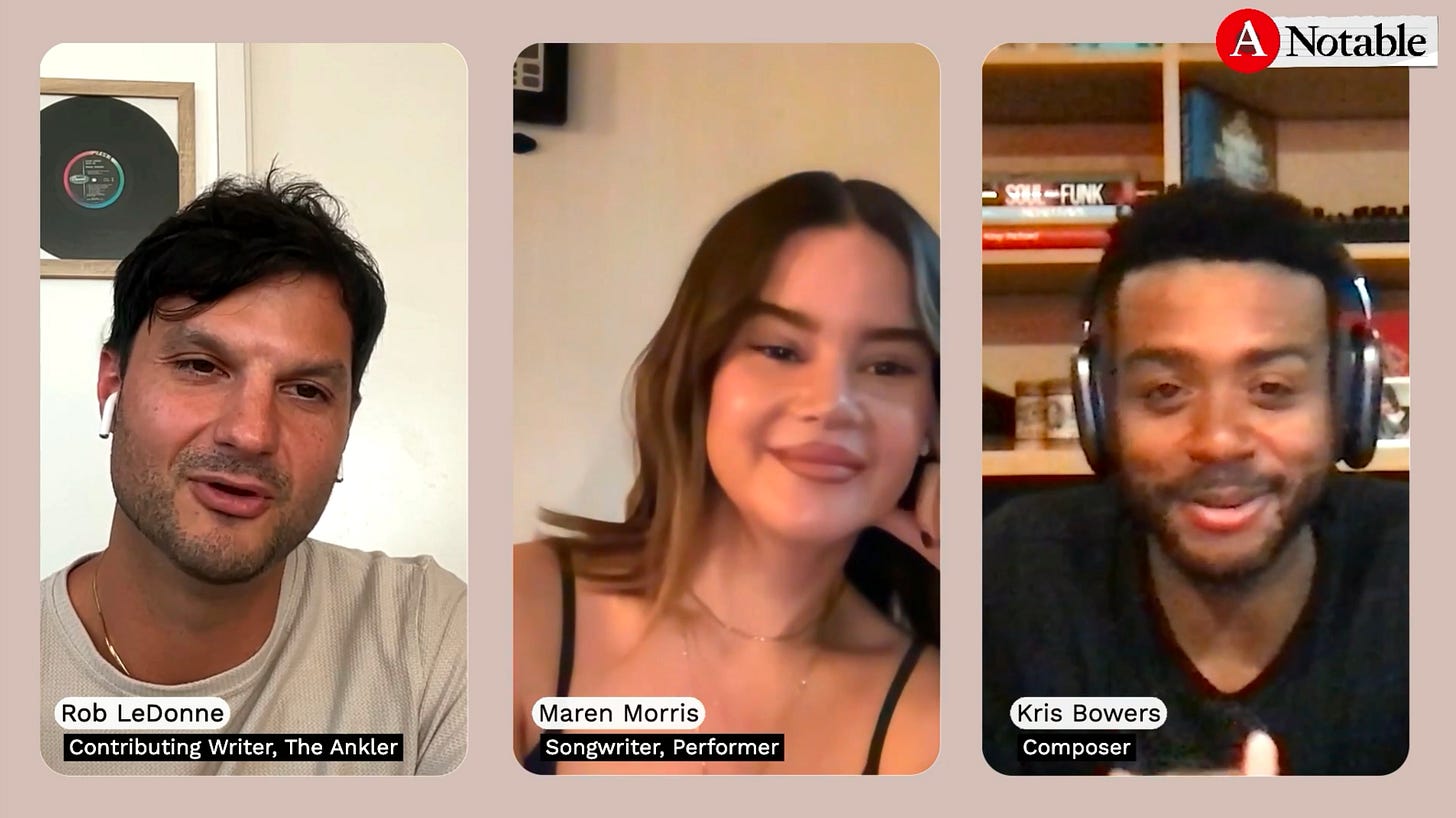
Which brings me to one of film’s most unforgettable songs this year: “Kiss the Sky” from The Wild Robot, still sitting pretty in the Top 10 at the box office, 10 weeks after its release with a global box office gross of more than $320 million.
At the core of The Wild Robot is the powerful scene where Brightbill, an orphaned gosling (voiced by Kit Connor), takes wing to join a flock’s migration. It’s a triumphant moment, but also bittersweet, especially for Roz (Lupita Nyong’o), the robot who has become Brightbill’s surrogate mother and helped teach him to fly, only to have him wing away from her toward independence.
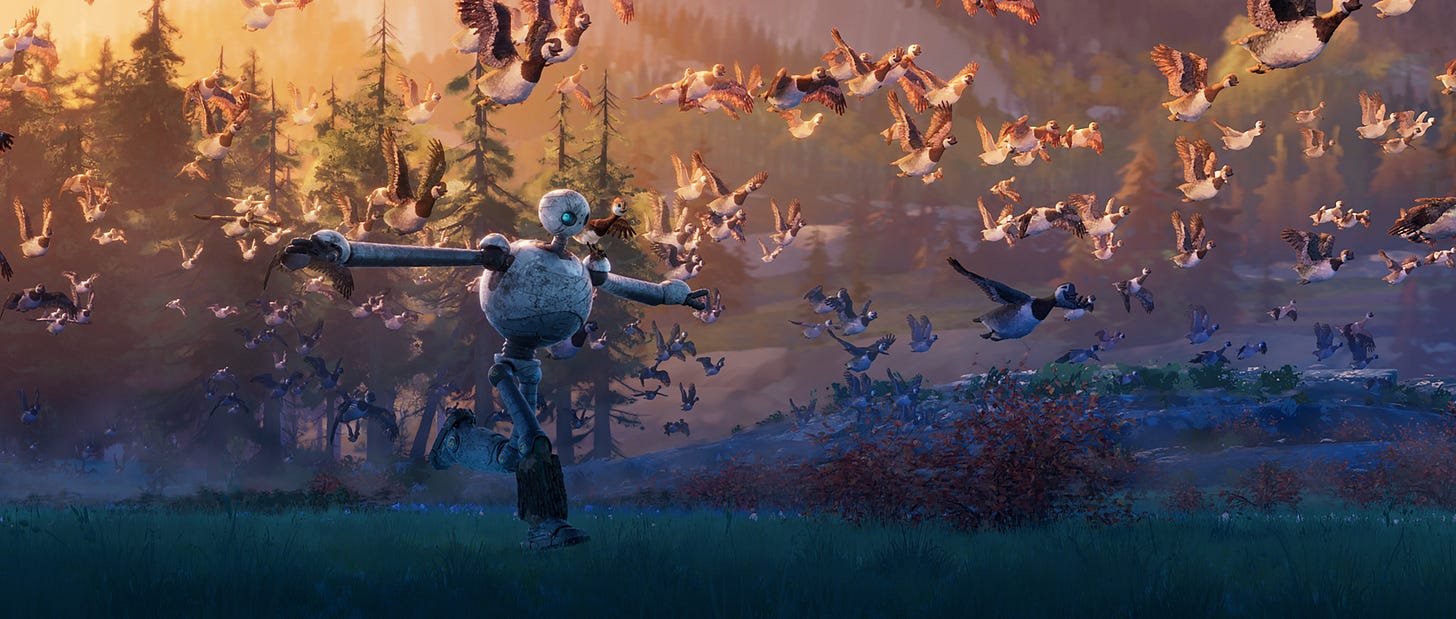
This pivotal sequence is soundtracked by “Kiss the Sky,” a heartfelt anthem performed by Morris, who wrote it alongside Delacey, Ali Tamposi, Michael Pollack, Stefan Johnson and Jordan K. Johnson, with The Monsters & Strangerz and Isaiah Tejada producing. The song’s emotional impact was supercharged for the screen by Bowers, who extended and reharmonized it to cover the seven-minute migration scene.
For Morris, the opportunity to take part in “Kiss the Sky” came at the perfect time. Not only did she relate to the material as the mother of a toddler (she has a 4-year-old son, Hayes), but the movie’s success and awards run are also aligned with a creative and personal transition for the artist.
After her start as a songwriter 20 years ago, self-releasing her debut album at just 14, Morris has carved a unique genre-spanning career, from country pop to mainstream dance smashes (including her ubiquitous song with the producer Zedd, “The Middle.”) But for a period recently, she was making more headlines with her personal life, coming out as bisexual after a much-publicized divorce. Now, she revealed exclusively to me, she’s just finished writing her next album after releasing an EP, Intermission.
My conversation with Morris and Bowers, via Zoom on Nov. 11, is edited and condensed here; you can view video of our interview, plus clips of her performing “Kiss the Sky,” here on Ankler Enjoy.
Maren, this is the first movie that you’ve done anything like this for. So how did you enter this Wild Robot universe and how long ago was that? Because I know animated movies take a long time.
Maren Morris: Yeah, and I didn’t understand the structure of why it takes so long. I had an idea, but then when you see this in its finished form, you realize how many hands had to be on it to make it look the way it does. So it was 2022 when I was brought into the fold, and they needed a song for the migration scene, and I had my 2-year-old son at that point, so I was still kind of new in motherhood. Having not read The Wild Robot books yet, I really resonated with the story and was in my feels just watching early renderings of this scene of Brightbill taking off for the first time.
It was just immediately making me think about my son, 16 years down the line, going off to college, and me and his dad dropping him off and just the emotional weight of seeing the future in that way. So it got me, and I just knew I wanted to be a part of the team just from that one scene.
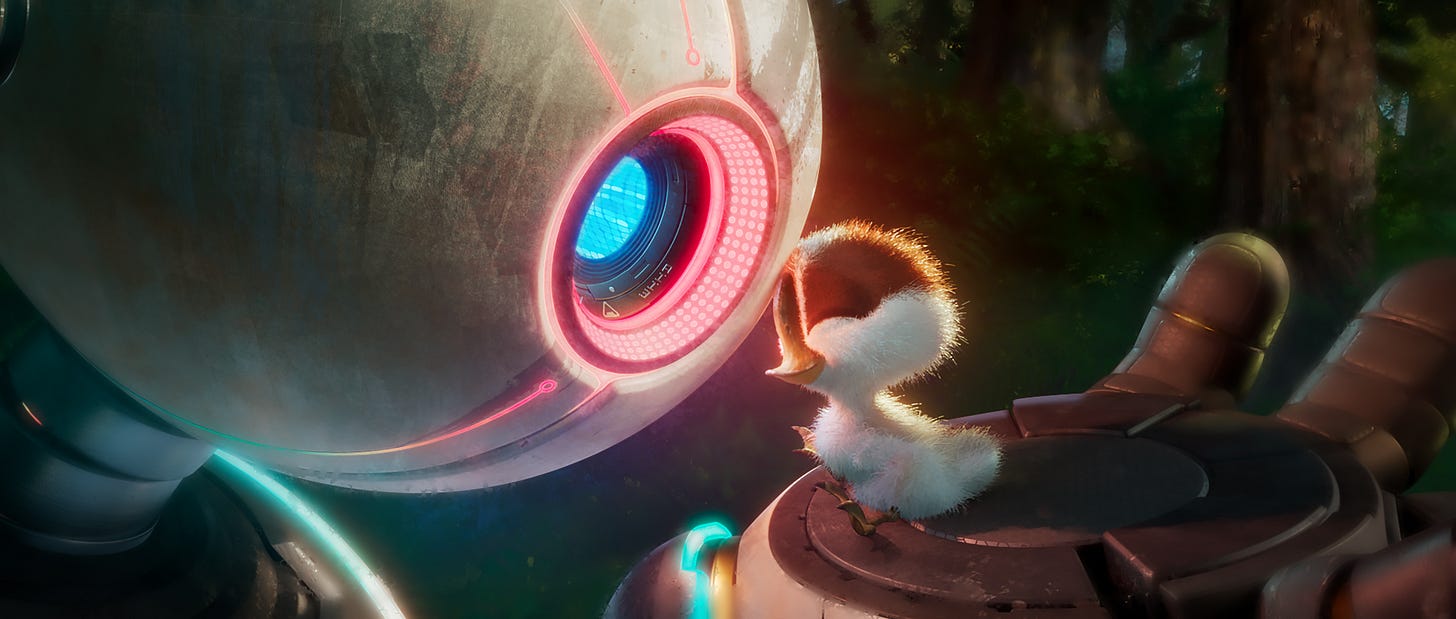
Kris, how did you join the fray? Because I know this is your first fully animated movie. What's the difference between working on an animated movie as opposed to live action? Does your process change at all?
Kris Bowers: Actually, I’ll start with the similarity. The thing that’s always the same for me, no matter what I’m working on, whether it’s animation or live action, I’m always starting from an emotional place first.
I started off as a jazz pianist. And so my connection with music is [that it’s] the most comfortable space for me to express emotion or translate emotion into something clear. And so usually I’m watching a film or reading a script, and I’m waiting for a moment that viscerally or involuntarily sparks an emotional response within me, and then I kind of take that feeling and go to the piano and improvise trying to find something that re-triggers that same emotional response.
Did you always know the migration scene was going to be a prime moment for a great song — or where in the process did you come to the realization that this chunk right here is perfect for a seven-minute-long epic song?
KB: When I was brought in, they already had that first demo of the song, and Mary Blee, the picture editor, was trying to figure out how to build it out into that six-and-a-half-minute sequence. And Mary had a very clear structure with how she cut this whole arc, and expressed to me wishing that the song could carry through that whole sequence. And so I reached out to Maren and the songwriters to share stems (individual tracks from the recording) with me, which they generously did. So then I could take those stems and build it out through the sequence and orchestrate around it and create the interstitial section and key change and all that stuff.
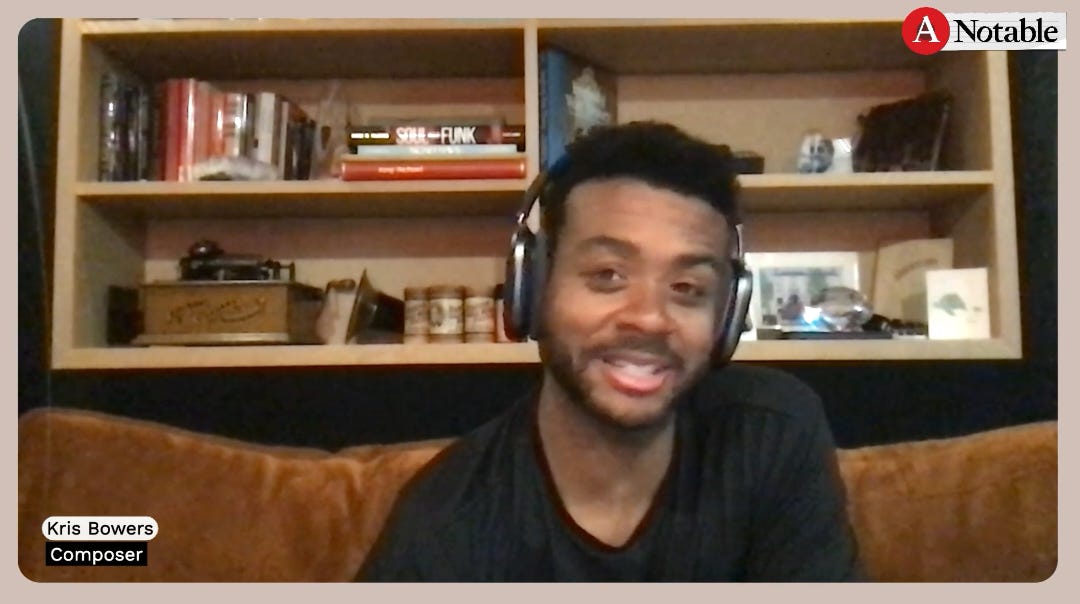
Maren, there’s some heavy-hitter co-songwriters on this. It’s like a murderers’ row of the most popular and successful people right now. You got Michael Pollack, known for his Grammy-winning work with Miley Cyrus including “Flowers,” as well as Delacey and Ali Tamposi.
MM: Yeah, I think I’d worked with every one of these writers beforehand. So, we were already comfortable with one another. I worked with producer The Monsters & Strangerz on “The Middle” back in 2018. So we had this huge year together, and then, it’s funny, because the next thing we did was “Kiss The Sky,” so I think our batting average has been pretty good. I was brought in after the initial sort of nugget of the song idea was formed, after an early demo, and I definitely loved the bones of what was going on in it. And we sort of adjusted some melodies just so they fit the peaks and valleys a little bit more emotionally, but everything was pretty established, even before my vocal was on it. They are the hitmakers, for sure. Myself as a songwriter, coming in and knowing there’s a kernel of an idea going, oh my God, it’s like a gift for me because I can just come in and truly make it my own, but also collaborate.
When we saw an early screening of this scene — seeing what Kris did where there’s a moment where you just hear score after the “Kiss the Sky” hook, and then the song comes back in a minute or two later, and he’s lowered the key. It didn’t even occur to me right away until I saw it; it’s not the bottom dropping out, it’s just such a mood change that he’s done. Historically in music, you raise the key to lift a scene. It elicits some sort of emotion of truly going off the cliff. And I just thought that was so brilliant. You obviously just have to be such a music nerd to even notice that.
KB: For this sequence to have this song was also such a gift, because her performance on it was really just chasing what already felt clear. It’s like those moments where something feels like it’s unraveling ahead of you, and you’re just trying to keep up with it.
The section that I feel came really organically is the reharmonization toward the end. Like Maren said, I thought about changing the key and then at the very end it was like, this kind of feels like it needs this different type of chord progression, and there’s something very, I don’t know, almost churchy about it in terms of this arrival at the very end that, again, felt like me writing something that was already in the air. That’s what I trust the most is when I have an emotional response, cause that’s something you can’t really force.
Maren, it seems like “Kiss the Sky” came to you at just the right moment. Did you feel that way when you were singing it, and do you ever get emotional just cutting lyrics?
MM: Yeah, I think the performance of this really had to go between extreme vulnerability, almost a whisper of a verse lyric, and then it goes full gang vocal chorus choir in moments. All that comes down to Stefan and Jordan vocal producing as well, because if I just do it one note the entire song, the fear is always, this is not going to work onscreen. You could be the best singer in the world, but if you don’t deliver an actual performance that matches what’s going on onscreen, it can completely derail or fall flat. So I think having watched an early screening and recutting vocals after the early screening, it really helped me get into the character of what I had already seen.
Later, for the final vocal, I was like, this is a very sparse moment, there’s a lot of dialogue happening between Roz and Brightbill, so this isn’t a moment where I need to be attacking the vocal and proving I can do all these runs, it just wouldn’t make sense. So you have to meet the moment where it is and not have it just be about you.
The timing of this is also amazing because you have Intermission out, and you said that you called the EP Intermission because there’s more to come. I’m wondering, why not make this its own era and then whatever comes next, another era? Why is this considered a bridge?
MM: I think because this is the first time I’ve really written in real-time while touring and also doing the work on this movie and promoting it. I’ve gone through a lot of personal stuff this past year, and I didn’t want to write and then wait a year and then put it out. I did my last sort of sessions in L.A. for writing for this [next] album a week ago. So I think I named it Intermission because it really was a halfway point — and I haven’t told anyone until this interview that I’m done writing for it.
But there is more to come. I’m so excited and I’ve never had this many plates spinning simultaneously, and normally I think I’d be overwhelmed, but sometimes life gives you a break, and you can just have the bandwidth to do all these things. It’s all fun, celebratory engagement, so I’m just taking it as it comes and excited to get this full project out in the coming months.
Maren, what was it like when you saw the movie for the first time with your son?
MM: I rented out a theater in Nashville, where I live, and I just invited friends and family to come watch it if they hadn’t seen it or if they had seen it and to bring their kids. My son, Hayes, is four and a half. He loves anything animal-related, and he did know going in that his mom had a song in it. He had heard “Kiss the Sky.” I think it was obviously emotional watching in the seat next to him.
Usually he’s like a chatterbox, but on this film he was completely engaged, locked in. He left the whole thing just on cloud nine. And, I’m of course crying next to him and just realizing this all was really full circle. Even if I didn’t have a song in this film, and I watched this movie with my son, I think I would end up having the same emotional reaction because it’s just such a beautiful film and story, whether you have children or not.
Your son is going to look back on his childhood and be like, “Wow, my mom sang that fricking song!” That’s iconic.
MM: I didn’t even think about that, when he’s older and he’s watching that film, maybe with his kids — oh God, I’m gonna cry — him realizing, “Oh my gosh . . . That was about me.”



